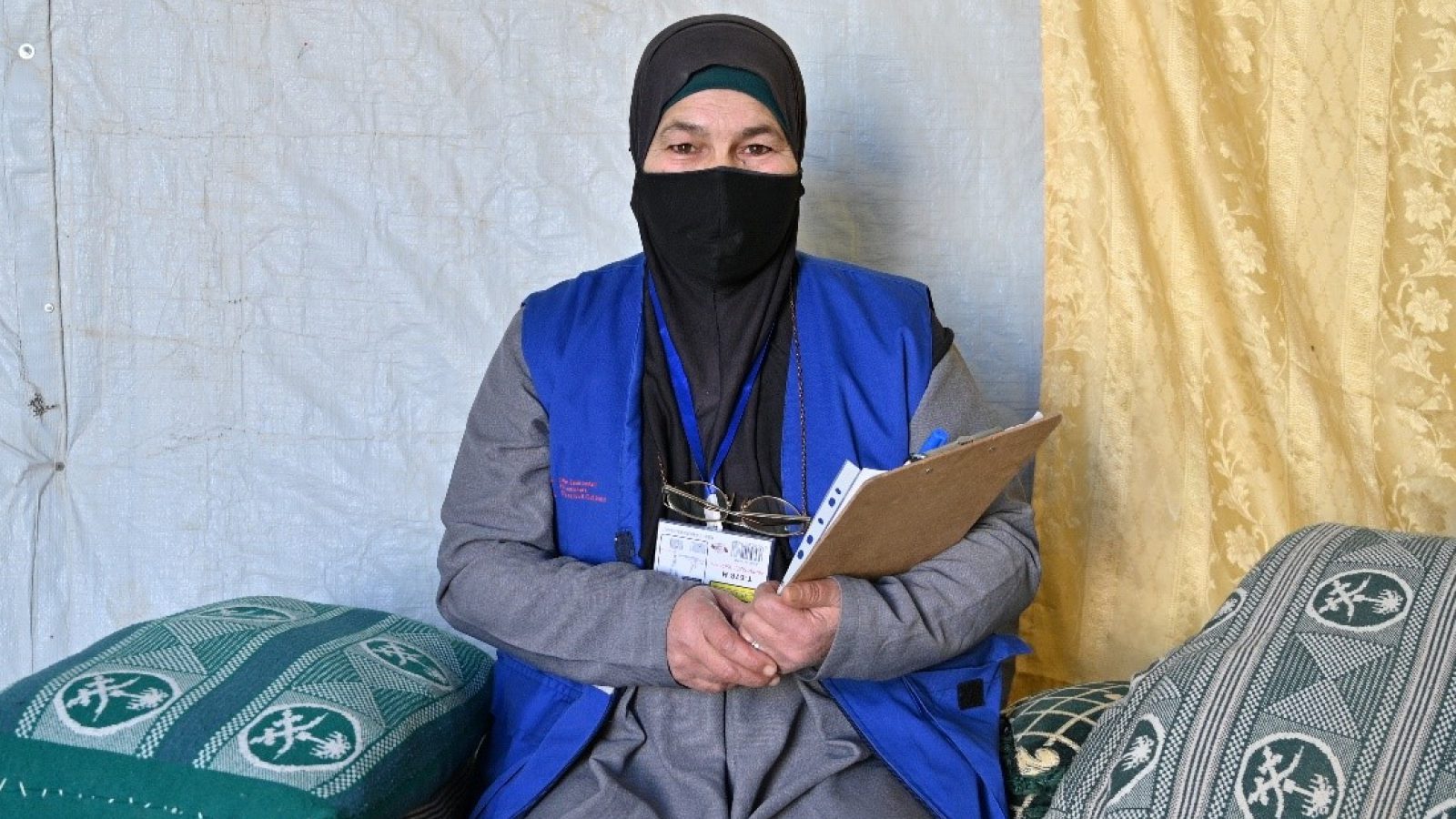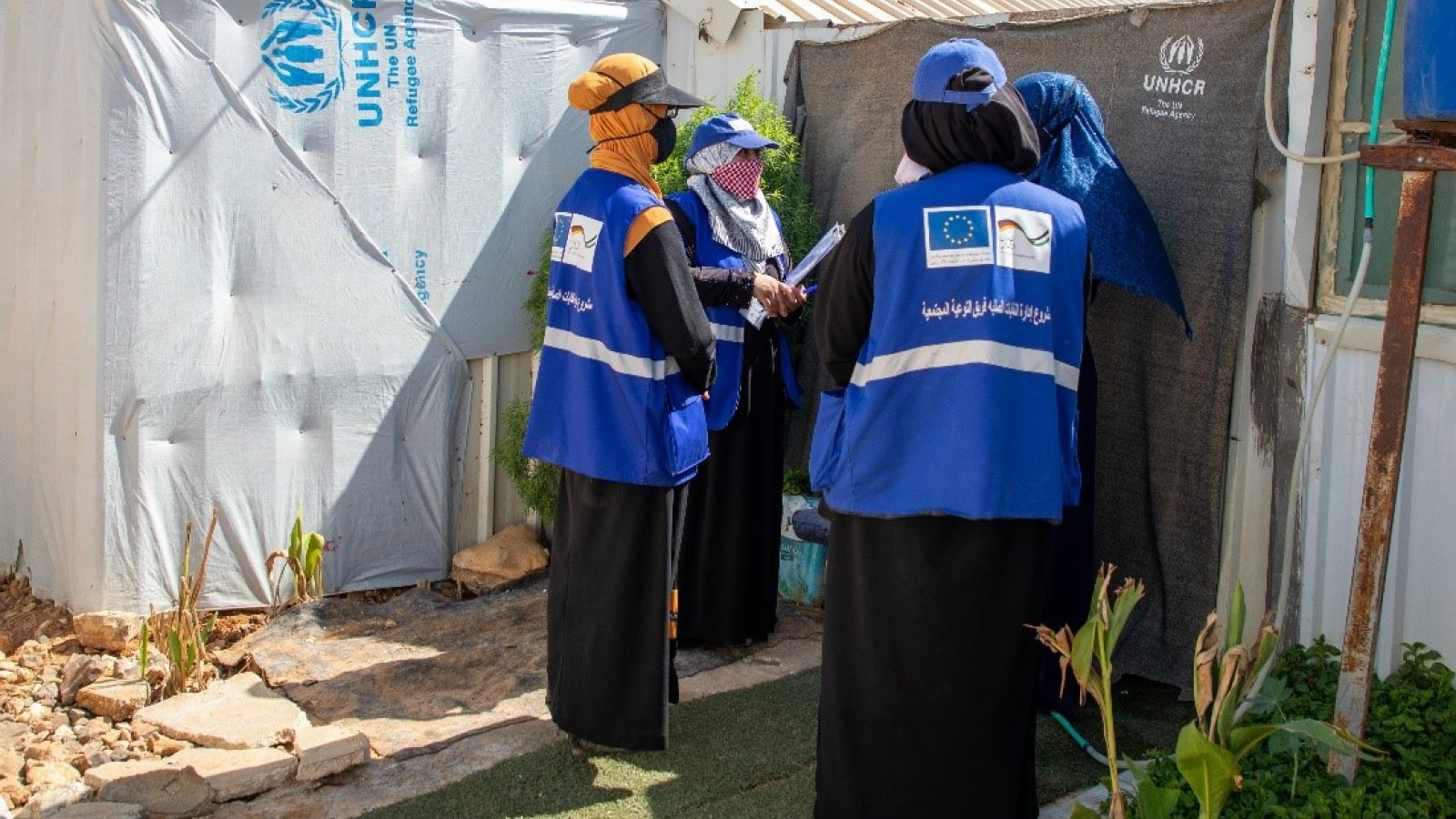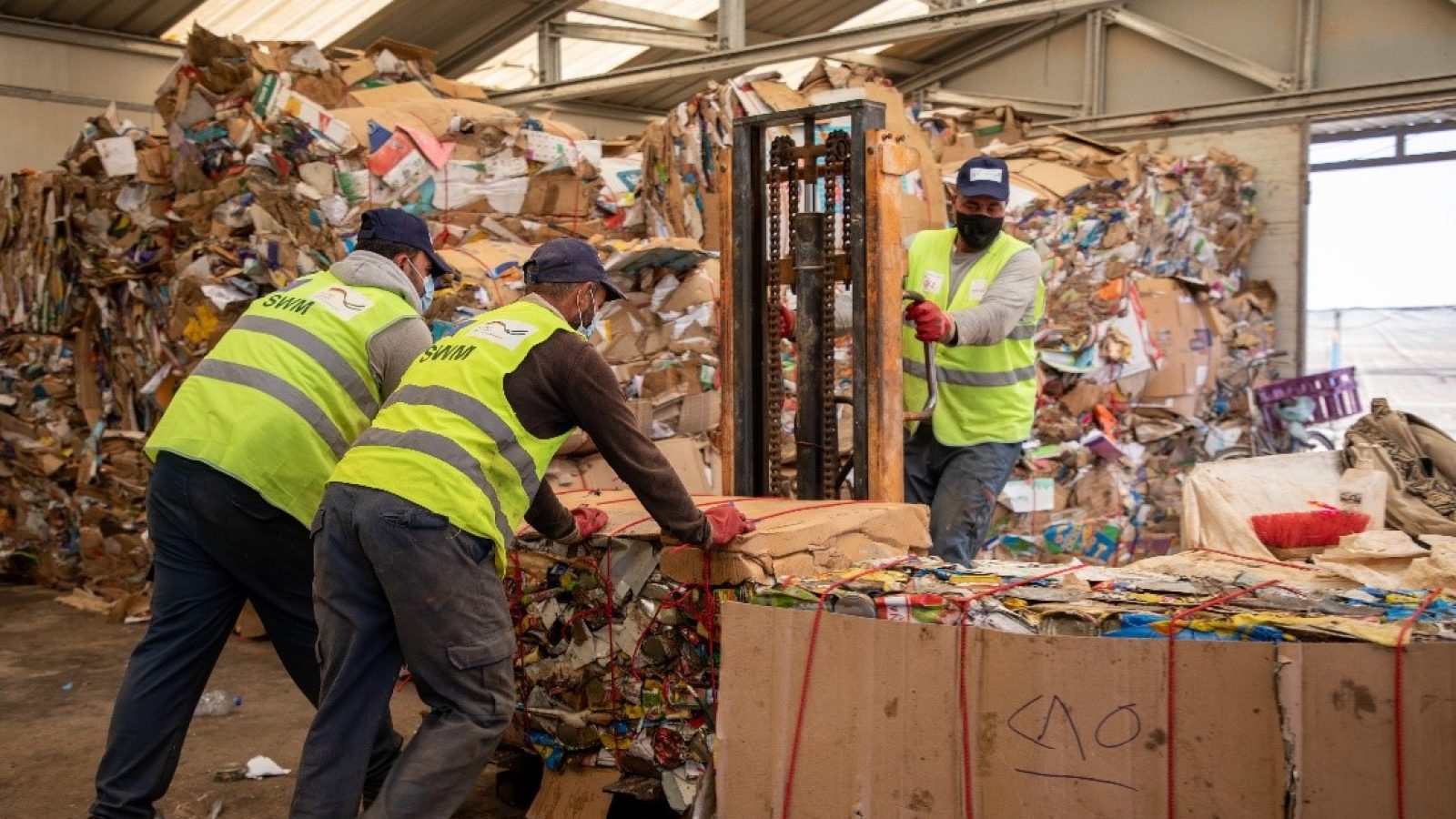Finding purpose through work – the success story of Hana’, SWM volunteer
Bouncing back from traumatic life events can seem impossible to some. This was the case of Hana*, a 50-year-old Syrian refugee who arrived in the Azraq refugee camp in northern Jordan 11 years ago. However, since she joined the solid waste management project funded by the EU Regional Trust Fund in Response to the Syrian Crisis, Hana has regained hope and passion for life.
“Before coming to Azraq, I used to be very active, I always found something to do. But, when I found myself in a new place and environment, the sudden changes turned me into a more introverted person,” Hana’ recalls. “I ended up not leaving the caravan, spending all of my time there.” Seeing her despair, Hana’ husband encouraged her to socialise and seek activities that would fulfil her and fill her time. Week after week, Hana’ started opening up again, meeting neighbours and friends, and looking for new opportunities. “I chose to be the woman I used to be before. A woman who is productive, ambitious and makes a positive difference in the world.” An idea came to her after the volunteers of the World Vision Behaviour Change Component conducted a door-to-door visit to her home. “They talked to me about how to safely dispose of waste and how to keep residents in the camp healthy. They were extremely polite, and they took their time to answer all of my questions even though I had so many!,” she remembers with a laugh.
Solid Waste Management: a daily necessity
Eager to learn more, Hana started researching the Solid Waste Management project, which is implemented by World Vision in partnership with GIZ and funded by the European Union (through the EU Regional Trust Fund in response to the Syrian Crisis) and the German Federal Ministry for Economic Cooperation and Development (BMZ). She enrolled in the courses to become a door-to-door volunteer raising awareness about waste management, explaining how to separate organic waste from solid waste and how waste is produced. “During my visits, I show people the two barrels they should use: the green barrel for organic waste, and the blue barrel for solid waste. I also shed light on the serious health risks of incorrect waste disposal.”
When poorly managed, waste can become a hazardous problem threatening the health and well-being of everyone in the camp. Initiatives like the SWM project seek to prevent this situation.
For Hana, joining the project was an obvious choice. “As soon as I learned more about it I knew that this was what I wanted from the beginning. This is when I started to feel like myself again.”
Taking action for a better future
Hana believes that by educating people about the rashes, infectious diseases, and respiratory illnesses improper waste management can cause, she can help improve people’s waste disposal habits. “This gave me a new perspective on life. I realised this was my chance to achieve something. I started revisiting my previous actions thinking about how I used to dispose of waste, and I then made a promise to change my behaviour. Those who clean the streets are our people and we should help them. Without knowing it, we may put their health at risk when we throw something away irresponsibly. So, I do not judge myself for the way I used to dispose of waste. I did not know back then the harm I could do. I started a new chapter now, hoping to make the job of people who handle waste easier and safer.” For Hana’, the Solid Waste Management project is a gift for the residents at the Azraq camp , “who can now enjoy a clean and disease-free environment”.
The EU and its Member States are the leading donors of international aid to those affected by the conflict in Syria. Since the start of the crisis in 2011, the EU has mobilised more than €25 billion to support the most vulnerable Syrians inside the country and across the region. The EU has organised, over 5 consecutive years, from 2017 to 2021, conferences supporting the future of Syria and the region. These have been the main pledging events for the Syria crisis. In 2021, the European Commission mobilised over €141 million in humanitarian aid to provide vital assistance to millions of people inside Syria. Adding to its initial allocation of €130 million, the Commission provided over €10 million to support people suffering from the severe water crisis and drought in northern Syria. The funding also helps support people throughout the winter. An additional €1 million was allocated for COVID-19 response.




























 Syria
Syria 





